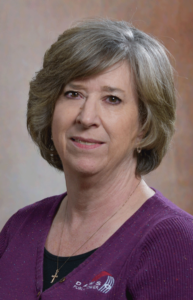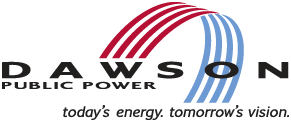
Gwen Kautz, Dawson PPD General Manager
By Gwen Kautz, General Manager
gkautz at dawsonpower.com
308-324-2386
You’ve heard about it, right? Let me assure you it’s the real deal. We’ll take a look around Dawson PPD’s service territory and share just how wide that divide is. We’ll also talk about the possible tie to public power.
The Federal Communication’s Commission’s 2016 Broadband Progress Report changed the definition of broadband internet by raising the minimum download speeds from 4 megabytes per second to 25 Mbps, and the minimum upload speed from 1 Mbps to 3 Mbps. This effectively triples the number of U.S. households without broadband access.
It isn’t just computers that need internet access now days. It’s called “the internet of things” (IoT). A new TV is Wi-Fi enabled so you can watch Netflix or Hulu. Modernizing your farm equipment may include tractors that use cloud services to calculate and store your field yield, specifically focused on irrigation and fertilization needs. Pivots can be controlled by an app on your phone. The new AI (artificial intelligence) devices like Echo and Google Home require constant online status. As more and more things need connected to maximize what that product can do, the demand for higher speed internet access will increase.
In Lexington, for example, you can get good internet speeds (60 Mbps down and 5 Mbps up) for about $45/month. In rural areas, the divide starts widening. Overton is about $62/month for 8 Mbps down x 1 Mbps up. However, speed tests show 6 Mbps down and less than 1 Mbps up. Most connections must be by a wireless provider with shared bandwidth so there is a significant drop in speeds during peak usage times. In North Platte and Kearney, you get good speeds at good rates. Move out of town and it’s a different story.
 President Trump signed two executive orders to facilitate rural broadband. One requires the Department of the Interior to ease access to towers and other infrastructure the department manages. The second calls for departments and agencies to reduce barriers to capital investment and government resources to enable rural broadband projects.
President Trump signed two executive orders to facilitate rural broadband. One requires the Department of the Interior to ease access to towers and other infrastructure the department manages. The second calls for departments and agencies to reduce barriers to capital investment and government resources to enable rural broadband projects.The State of Nebraska has jumped on the “rural broadband wagon,” too. Governor Ricketts and many others tout the need for broadband access to support economic development. Without high-speed internet, companies simply won’t consider locating here. Businesses rely on the internet.
Public power may be able to help bridge the gap with infrastructure in rural areas. Dawson PPD does not want to be an internet provider, but we are willing to do our part to help broadband expand to the country. This cannot be done if our electric customers have to subsidize the endeavor, and safety is the highest concern of all. Only qualified employees should have access to anything on Dawson PPD’s poles. Nothing else is acceptable. Nothing. Those two things go hand in hand and cannot be conceded.
The concerns we have with broadband today remind me of when electricity was scarce in rural areas more than 80 years ago. They did not have the comforts city dwellers did. What happened? Country folks demanded equality! It might be that time again.
Tell me what you think! I’d be interested in your “access to the internet” experience in the rural areas. My email address is at the top.
March 2018
